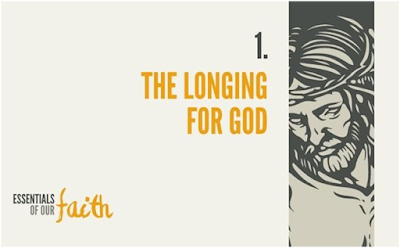As You Father, in me and I in You…
March 18, 2025
The entrance antiphon of the Mass reads: ‘Behold a faithful and prudent steward whom the Lord set over his household”. The Collect reads: “Grant, we pray, almighty God, that, by Saint Joseph’s intercession, your Church may constantly watch over the unfolding of the mysteries of human salvation, whose beginnings you entrusted to his faithful care”. The Communion antiphon reads: “Well done, good and faithful servant: Come, share your master’s joy”.
He is the universal patron of the Church, Guardian of the Holy Family (cf. article below from the DRM). Today, the eve of St. Joseph’s feast day, we are celebrating a custom of entrusting our friends to the guardianship of St. Joseph. We ask the Holy Spirit to grant His gifts to them, enkindle their souls in love and enlighten their minds to the path God chooses for them.
(From the Daily Roman Missal) The Bible pays Joseph the highest compliment: he was a “just” man. The quality meant a lot more than faithfulness in paying debts.
When the Bible speaks of God “justifying” someone, it means that God, the all-holy or “righteous” One, so transforms a person that the individual shares somehow in God’s own holiness, and hence it is really “right” for God to love him or her. In other words, God is not playing games, acting as if we were lovable when we are not.
By saying Joseph was “just”, the Bible means that he was one who was completely open to all that God wanted to do for him.
He became holy by opening himself totally to God. The rest we can easily surmise. Think of the kind of love with which he wooed and won Mary, and the depth of the love they shared during their marriage.
It is no contradiction of Joseph’s manly holiness that he decided to divorce Mary when she was found to be with child. The important words of the Bible are that he planned to do this “quietly” because he was “a righteous man, yet unwilling to expose her to shame” (Matthew 1:19).
The just man was simply, joyfully, wholeheartedly obedient to God – in marrying Mary, in naming Jesus, in shepherding the precious pair to Egypt, in bringing them to Nazareth, in the undetermined number of years of quiet faith and courage.
The Bible tells us nothing of Joseph in the years after the return to Nazareth except the incident of finding Jesus in the Temple (see Luke 2: 41 – 51). Perhaps this can be taken to mean that God wants us to realize that the holiest family was like every other family, that the circumstances of life for the holiest family were like those of every family, so that when Jesus’ mysterious nature began to appear, people couldn’t believe that he came from such humble beginnings: “Is he not the carpenter’s son? Is not his mother named Mary…?” (Matthew 13: 55a). It was almost as indignant as “Can anything good come from Nazareth?” (John 1: 46b).
Quote: “He was chosen by the eternal Father as the trustworthy guardian and protector of his greatest treasures, namely, his divine Son and Mary, Joseph’s wife. He carried out this vocation with complete fidelity until at last God called him, saying: ‘Good and faithful servant, enter into the joy of your Lord’” (St. Bernadine of Siena).
In today’s
post we are starting the chapter on our divine longing for communion (From Broken Gods, Hope, Healing, and the
Seven Longings of the Human Heart, Gregory K. Popcak, Ph. D. Ch 10).
Based on this basic biological need for communion, St. John Paul the Great wrote of what he called the “nuptial meaning of the body.” Of course the word “nuptial” usually refers to a wedding, and this case is no different, except as St. John Paul the Great used the term to refer to the wedding that occurs upon the fulfillment of the unitive way of our spiritual journey—the Wedding Supper of the Lamb, where we will achieve oneness with God and the Communion of the Saints.
The nuptial meaning of the body from the Theology of the Body in a
nutshell: “Man, whom God created male and female,
bears the divine image imprinted on his body ‘from the beginning.’ Man and
woman constitute two different ways of the human ‘being a body’ in the unity of
that image.” (Saint Pope John Paul II)
The Resurrection of Jesus provides a wonderful platform
upon which to discuss Saint John Paul II’s Theology of the Body –
this because Jesus in His divinity did not return to the Father as a
disembodied Spirit but as a human being fully reunited to His resurrected and
Glorified body which – get this – he then introduced into the
very life of the Trinity. The Catechism of the Catholic Church puts
it like this:
“The Father’s power “raised up” Christ his Son and by
doing so perfectly introduced his Son’s humanity, including his body, into the
Trinity.” (no. 648)
The human body, by way of revelation and Catholic theology, therefore has an infinite worth as a partaker in the Eternal Life merited by Jesus Christ.
The Catechism of
the Catholic Church (no.
27) has summarized some of these ideas succinctly: “The desire for God is
written in the human heart, because man is created by God and for God; and God
never ceases to draw man to himself. Only in God will he find the truth and
happiness he never stops searching for” (cf. The Longing for God, opusdei.org).
“God is calling you to serve him in and from the ordinary…. There is something holy, something divine hidden in the most ordinary situations, and it is up to each one of you to discover it.” St. Josemaria Escriva Passionately Loving the World, no. 52.
In his theology of the body, St. John Paul the Great argues that God created our bodies to need communion specifically so that our very human nature could orient us toward the heavenly communion for which we are destined. Recall God’s words at the dawn of creation: “It is not good for the man to be alone” (Gn 2:18). Human beings use a vocabulary of words and gestures. But creation itself is the Divine vocabulary.
The Compendium of the Catechism teaches that starting “from the world and from the human person, through reason alone one can know God with certainty as the origin and end of the universe, as the highest good and as infinite truth and beauty” (no. 3). But acquiring this certainty is a complex process that depends on one’s personal dispositions and that allows considerable room for discussion, which explains why the rational paths to God’s existence are often not completely convincing (cf. Ibid.).
We could refuse to listen to God’s call to communion, but we would never stop feeling the urge. It seems odd, but St. Augustine and cognitive neuroscience appear to be in agreement on the subject of our innate striving for union with God. While Augustine reminds us that the human heart is restless until it comes to rest in God, scientists who study the deepest functioning of the human brain “are becoming increasingly aware that a metaphysical outlook may be so deeply ingrained in human thought processes that it cannot be expunged” (Vittachi, 2014). At the beginning of time, we were created to live in communion, and even now, fallen as we are, the deepest parts of us point to our destiny: an eternity living in communion with God and the saints at the eternal wedding feast.
“To sum up
all in one phrase--as the soul is to the body, so Christians are to the world.”(cf
Ibid.).
(From The
Communion of Saints: More United than
Ever, opusdei.org) The communion of saints is a
marvelous reality. In a certain way it is the Church herself. Through this
communion all believers form one body with Christ as the Head. Christ’s life in
the Holy Spirit reaches all of us who are united to Him and united among ourselves
as members of his body, as the Catechism of the Catholic Church teaches
(cf. no. 947).
We
also read in the Catechism that the term “communion of saints” has two closely
related meanings: “communion in holy things” and “communion among holy persons”
(no. 948).
The spiritual goods are a
“common fund” in the Church: universal and unlimited gifts that come from God
through Christ. Christ is the inexhaustible fount from which these goods flow:
a common faith, the grace of the sacraments and the gifts of the Holy Spirit,
the various charisms, and material goods that are distributed among the members
of the one body of Christ (cf. Catechism of the Catholic Church,
nos. 949-952).
The
fruit of the sacraments is meant for all the faithful. The life and grace that
any member receives affects the entire body. The good reaching one member helps
all the other members.
This
truth of our faith that leads us to feel closely united to everyone can greatly
encourage us, especially in difficult situations. My prayer assists all my
brothers and sisters in the faith. It helps all those I love even though they
are far away, and even those I don’t know personally. Everything uniting us to
Christ, every gift that comes to us from Him, is shared by all and helps us
all. The celebration of the sacraments, now restricted in many places, is of
benefit to everyone. Even though only one Mass were celebrated in the whole
world, we would all draw supernatural life from it, since in the Mass the
infinite source of our redemption becomes present once again: the Passion,
Death and Resurrection of Christ.
My love for God, my serene and trusting prayer, my devotion to our Lady, to Saint Joseph, to all the saints; my work, my daily tasks done with love, accepting the hardships of each day patiently... all are of benefit for everyone in the Church: for my family members, my friends, my loved ones... and also for those who are in greater need, persons perhaps unknown to me, but who are never forgotten; and for the deceased… for everyone! The sick, the dying, those affected by the current crisis, are receiving divine life also through my union with God: through my prayer, my penance, my work, my service at home, a thousand daily details of love.
The love
that spurs me to serve others, to console someone or provide material
assistance, is the same love that leads me, with supernatural outlook, to pray
and offer small sacrifices for people who perhaps are far away, but who are
very close to us in Christ’s heart. This is a real help to others and an
effective and caring love.
I will not say more. When you and I talk to God about all the above truths in the quiet moments of our conversation and prayer, He will tell us more things. Let us foster the disposition of listening to Him more intently so that you and I will readily heed His will like St Joseph in every way and Jesus as well up to the point of dying on the cross for each one of us.
Certainly this topic is opportune to the
season of Lent that we are living in these days, don’t you think so?
See
you in the next post, “May tomorrow be a perfect day; may
you find love and laughter along the way; may God keep you in his tender care;
‘til He brings us together again.”
Affectionately,
Guadalupinky













Comments
Post a Comment